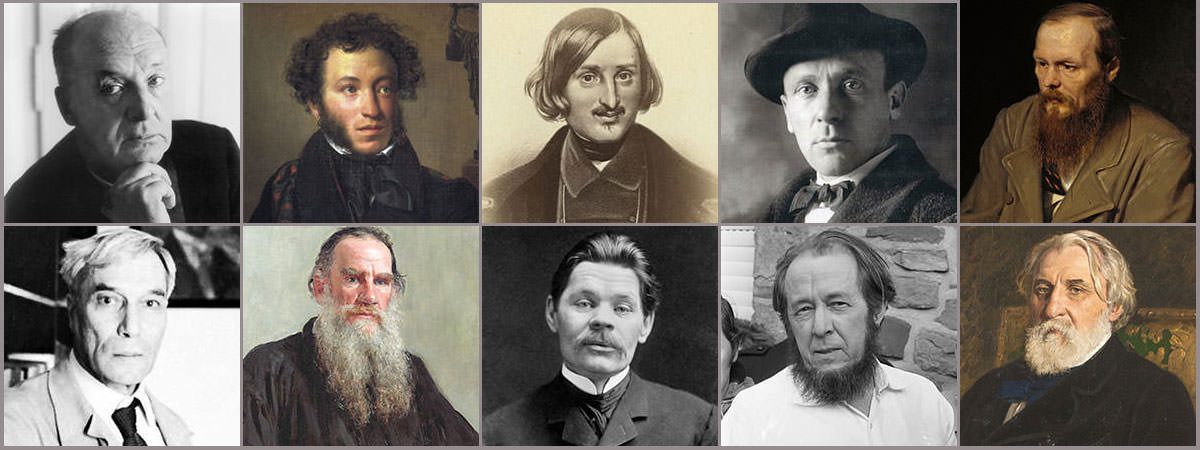The rich tapestry of Russian literature unfurls its origins in the hallowed corridors of the Middle Ages. A labyrinthine journey through the annals of time reveals a profusion of great Russian novelists, each a luminary in their own right. In this epoch, the literary landscape bore the imprints of Old East Slavic and Old Russian, creating a linguistic bedrock for the burgeoning literary tradition. The ink-stained quills of medieval scribes etched tales that would echo through the corridors of time, laying the foundation for the literary prowess that would characterize Russian letters.
In the sprawling tapestry of Russian literature, the latter half of the 19th century unfurls with the imposing presence of two literary giants: Fyodor Dostoevsky and Leo Tolstoy. These luminaries heralded as among the greatest novelists of all time, not only achieved domestic acclaim but transcended geographical borders to attain international recognition. Their collective mastery over the art of storytelling, encompassing both short tales and novels, propelled Russian literature to unprecedented heights. The fervent exploration of the human psyche and profound philosophical inquiries embedded in their works forged a legacy that reverberates through literary corridors.
The 20th Century Pantheon: Pasternak, Nabokov, Solzhenitsyn
As the 20th century dawned, the landscape of Russian literature witnessed the emergence of new luminaries, each leaving an indelible mark on the literary canvas. Boris Pasternak, Vladimir Nabokov, and Aleksandr Solzhenitsyn stand prominently among the vanguard of this literary renaissance. Pasternak, famed for his magnum opus “Doctor Zhivago,” navigated the tumultuous waters of political and emotional upheaval. Nabokov, with his virtuosic command of language, gifted the world “Lolita,” a controversial yet undeniably brilliant exploration of taboo. Solzhenitsyn, through works like “One Day in the Life of Ivan Denisovich,” illuminated the dark corners of Soviet oppression with unflinching realism.
The Decade of Literary Titans: 10 Great Russian Novelists and Their Magnum Opera
Venturing into the heart of 20th-century Russian literature unveils a panorama of literary prowess, with ten towering figures etching their names into the annals of global literary heritage. Boris Pasternak’s “Doctor Zhivago” stands as a testament to the intertwining of personal and political destinies. Vladimir Nabokov, the literary virtuoso, gifted the world with the controversial yet undeniable brilliance of “Lolita.” Aleksandr Solzhenitsyn’s “One Day in the Life of Ivan Denisovich” served as a piercing exposé of the harsh realities of Soviet labor camps. These names, alongside others like Mikhail Bulgakov, Anna Akhmatova, and Andrei Platonov, form a constellation of literary brilliance that defines the zenith of Russian storytelling in the 20th century.
Interesting facts about 10 Great Russian Novelists
A zenith of literary brilliance dawned upon Russia in the 19th century, an era where the quills danced with unparalleled fervor. It was during this epoch that the world witnessed the emergence of undeniably masterful works, woven into the fabric of global literary consciousness. Russia, in this renaissance of letters, became a crucible of creativity, birthing narratives that transcended borders. Amidst the literary titans of the time, Alexander Pushkin, an indisputable colossus, stood tall as the progenitor of modern Russian literature, casting a long shadow over the literary landscape.
6. Alexander Pushkin
Prodigious Talent and Early Controversy:
Alexander Pushkin, born into Russian nobility on June 6, 1799, demonstrated his literary prowess early, publishing his first poem at the tender age of 15. However, his incendiary works, such as the poem “Ode to Liberty,” led to exile by Tsar Alexander I. Although granted release by Tsar Nicholas I, Pushkin remained under strict surveillance, the tsar retaining a vice-like grip on everything the poet published.
Romance, Duel, and Tragic Demise:
Pushkin’s personal life was as tumultuous as his literary pursuits. Marrying Natalia Goncharova, a famed beauty in Moscow, rumors of her involvement with French military officer Georges-Charles de Heeckeren d’Anthès ignited a fatal duel. Pushkin succumbed to wounds at the tender age of 37, leaving behind a legacy fraught with tragedy.
Poetic Legacy and Literary Innovations:
Alexander Pushkin, often hailed as the preeminent Russian poet and the architect of modern Russian literature, contributed significantly to the novel genre. His novel in verse, “Eugene Onegin,” stands as a testament to his literary innovation and enduring impact. The richness of Pushkin’s literary legacy resonates through his novels, including “The Captain’s Daughter” (1436) and “Dubrovsky” (1841).
7. Mikhail Bulgakov
Medical Beginnings and Literary Pursuits:
Mikhail Afanasyevich Bulgakov, born on May 15, 1891, embarked on an intellectual journey that spanned both medicine and literature. Graduating from the Medical Department of Kyiv University in 1916, Bulgakov’s initial foray into medicine was short-lived, as the allure of writing proved irresistible.
Literary Struggles and Government Opposition:
Bulgakov’s literary creations, characterized by a blend of realism and humor, gained popularity, yet the Soviet authorities frowned upon them due to their critiques of Soviet culture and norms. Throughout his life, Bulgakov grappled with governmental disapproval, with several of his works facing bans.
Stalin’s Patronage and Artistic Strife:
In a curious twist of fate, Soviet dictator Joseph Stalin admired Bulgakov, asserting that a writer of his caliber transcended political labels. Stalin’s favor shielded Bulgakov from arrests and executions, though the impediment to publishing his works persisted. Despite the challenges, Bulgakov left an indelible mark with his posthumously published masterpiece, “The Master and Margarita,” recognized as a 20th-century literary gem, celebrated for its humor and incisive satire.
8. Ivan Turgenev
More Interesting Articles
- 28 Letesenbet Gidey Interesting Profile, Biography Facts
- 26 Louise Gluck Interesting Facts You Didn’t Know
- Muhammed Ali Ansary – M A Ansary Montu Contributions & Facts
- 28 Florence Nightingale Facts – How She Changed the World
- 24 Interesting Facts about Malcolm X – How He Uplifted Himself
- 26 Laura Ingalls Wilder Facts – How She Faced Challenges
- 31 Interesting Facts about Stephen King – Secrets of Success
- 30 Fun Facts about Mother Teresa – What Did She Say Before Died
- 24 Jean Michel Basquiat Facts – Why He Died So Young
- 27 Interesting Facts about Elon Musk – Secrets of Success
- 50 Joe Biden Fun Facts – The 46th US President
- 23 Surprising Catherine the Great Facts – Rise and Fall
- 48 Interesting Facts About Leonardo da Vinci

